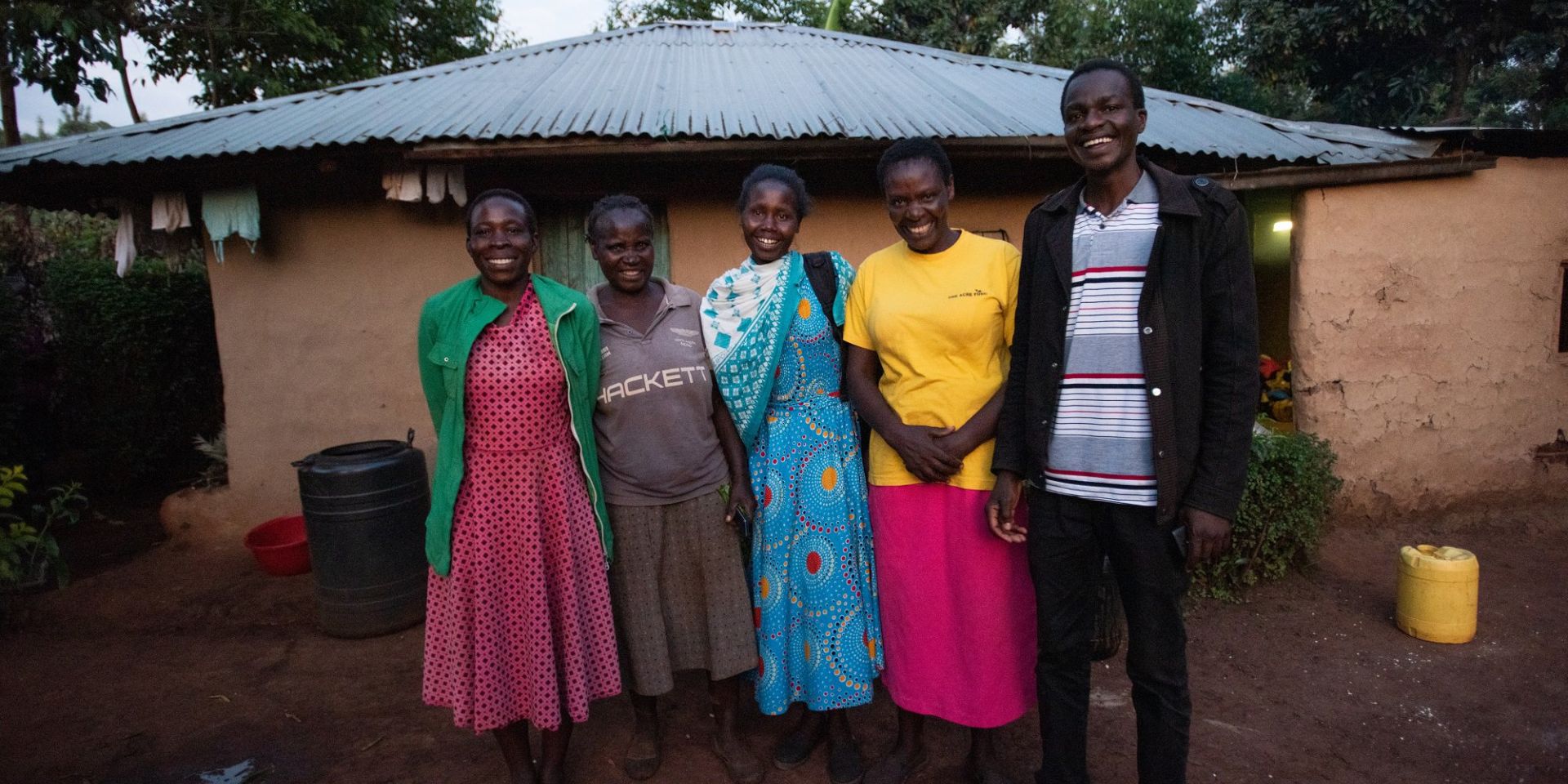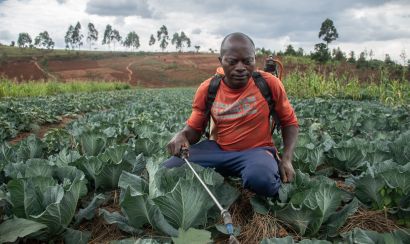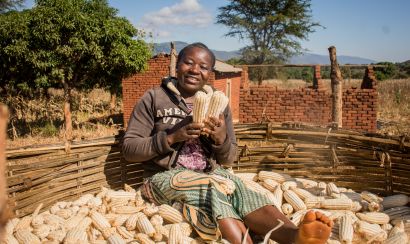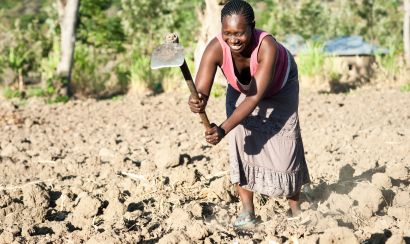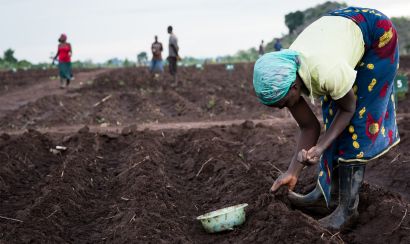COVID-19 Update on our Millionth Farmer Group
On the afternoon of March 26, 2019, farmer Susan Kabesa faced an unusual riddle: with roughly 12kgs of maize in her home and her usual income stream unexpectedly paused indefinitely, how would she feed her family of eight – herself, her husband and their six children?
When Kenya’s country-wide curfew was announced, she was in the fresh produce market at Birongo, Kisii County, where she is to be found on most evenings, selling vegetables. Although she had known for a while that a new disease was spreading quickly through the world, it had seemed faraway. Even once Kenya announced its first case, she had often told herself, It won’t affect the villages. But today it had.
When Susan arrived home, her third born met her at the door with a jug of water and soap and asked her to wash her hands. He wore a playful grin. For a moment, lost in thought about what the days ahead would be like, she had completely forgotten the new protocol. Seeing her son there, reminding her of the new rule she had taught him just days before, she was brought back to the immediate realities of her home, and a smile broke on her face for the first time that evening.
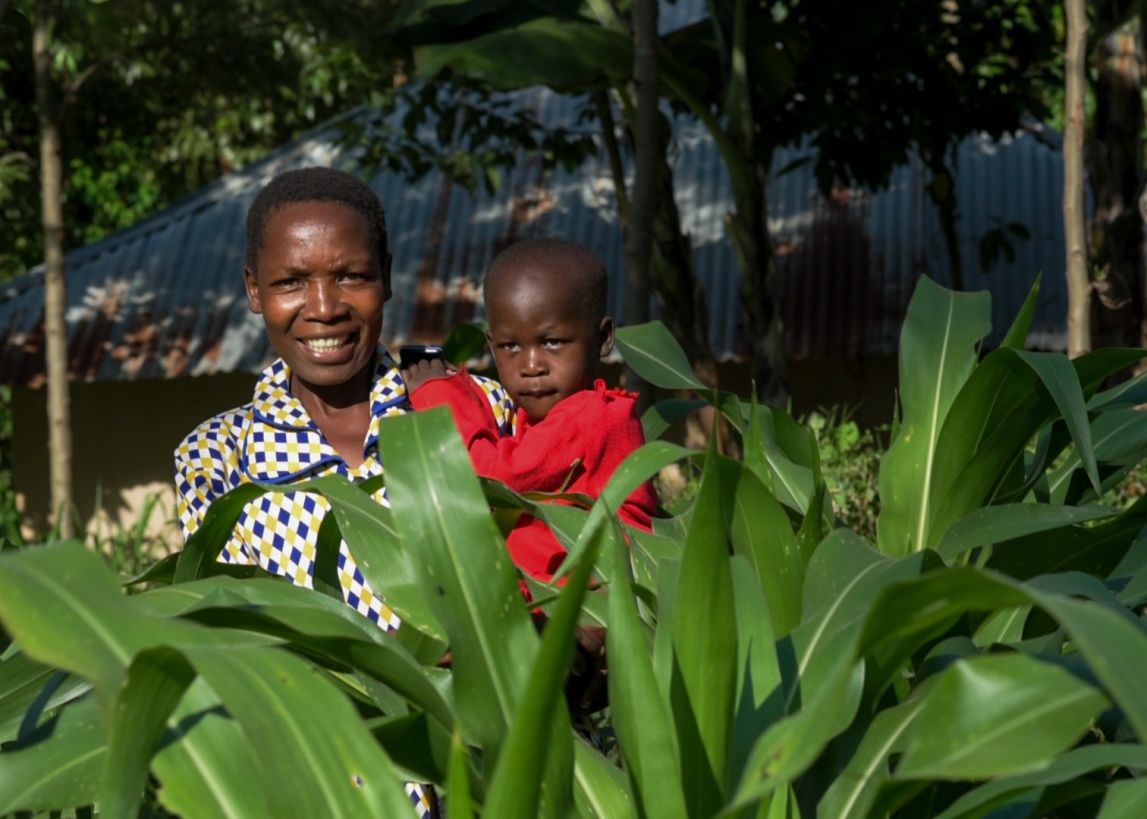
Farming Before COVID-19
Susan, who signed up with One Acre Fund in October 2019, is one of 10 farmers in the Kanyao Group from Birongo, Kenya. Her group was one of those whose enrollment in 2019 pushed us over the 1 million farmers milestone.
For years, a lack of finance, agricultural knowledge, and support meant that Susan’s maize yields were poor. Prior to joining One Acre Fund, she had consistently harvested about 80kgs of maize, and 30kgs of beans from slightly less than acre of land. It was barely enough for food.
“I experienced a most-welcome ease in acquiring farm inputs this season,” Susan says of her decision to enroll with One Acre Fund. “I am confident I will get more than triple my usual harvest this season.”
When the first COVID-19 case was announced in the country, she initially dismissed it as an urban disease. Then the Government announced it was instituting measures to curb its spread. As fate would have it, Kisii County was among the first to begin implementing measures to prevent the disease from spreading, even though no case had been reported there yet.
Market Closures & Disconnect
“In the early days, people went about their business as usual,” Susan says. “But when the national government announced movement restrictions, the county government closed down the market altogether. It caught us off guard, because suddenly we couldn’t buy or sell our produce.”
The closure halted what had been a steady source of income for Susan.
“We used to go to the market in the evening and stay well past 7pm. With the current nightly curfew, that is no longer an option. People don’t want to leave their homes for fear of catching the disease or violating the curfew, so it has hit us in a big way,” Susan says.
“What happens now is that we sell straight from our farms,” Susan says. “Sometimes nobody comes. Sometimes I have a lucky day and sell to three or four neighbors. It is difficult all round.”
The shutdowns have also impacted how Susan and her group can interact and share farming best practices. Especially as a new member, Susan found the interactions within her group to be extremely beneficial for her farming. She could consult her group on how to address basic issues, like pests and correct planting methods.
Their only connection now is through phone calls. Placing calls is an expense they could do without, but one they endeavor to meet because they understand the value of staying in touch and encouraging one another during the crisis.
In Susan’s Kanyao group, the members have agreed to help each other through this time. For example, they try to sell and buy amongst themselves to support each other, before venturing out of their circle.
Keeping Healthy
Susan says most of the health practices herself and her family are using day-to-day came from lessons through her One Acre Fund field officer.
“After the government announced movement restrictions, our field officer came around to teach us how to keep safe,” she says. “We were advised to keep distance when interacting, and to wash our hands as often as we can. He gave each one of us soap and said we would also be given sim cards to enable us make any day-to-day payments through mobile money.”
Susan said that like us all, she hopes the virus will be contained soon. She misses the carefree hugs she used to get from her children, especially her last born, whenever she comes back home from the farm.
“Often, I would bring gifts for the children, like sweet bananas or groundnuts, and they would come running to me. It was nice; I want to go back to that time,” Susan says.
Future Plans
“Despite the current gloom, I am confident that I will be rewarded for my hard work. I think I just needed to be guided on how to use the little resources I have to become food sufficient,” she says.
Despite an earlier armyworm scare, her crops are doing well. “If I can harvest at least 400kgs of maize this season, I won’t have to worry about feeding my family, even with the COVID-19 restrictions in place” Susan says.
Resourceful and ambitious, Susan wants to work hard to develop her farming skills, earn more money and transform her family’s fortunes. They are big plans, but she is determined to attain them.
“I do not want to be a subsistence farmer forever,” she says. ”At some point, I want to grow into a businesswoman who deals in both food crops like maize and vegetables, and livestock. I want to be able to look after my children, even with uncertainties like this one.”
With time, she also hopes to come together with other smallholder farmers to set up a savings association. From it, they contribute a sum every month and take turns to borrow lump sums from the collective savings to invest in farming or associated income-generating ventures.
“I want us to be able to live in decent homes, educate our children and feed our families without struggle. We want to live dignified lives, and COVID-19 is not going to take away that from me,” she asserts.
